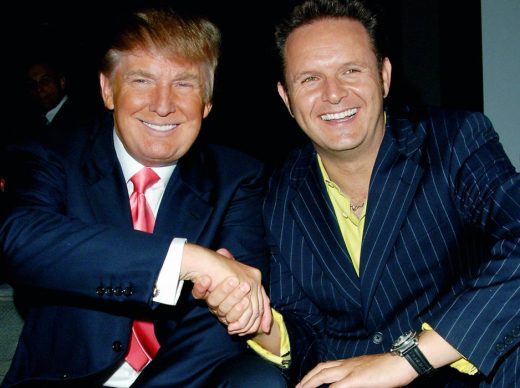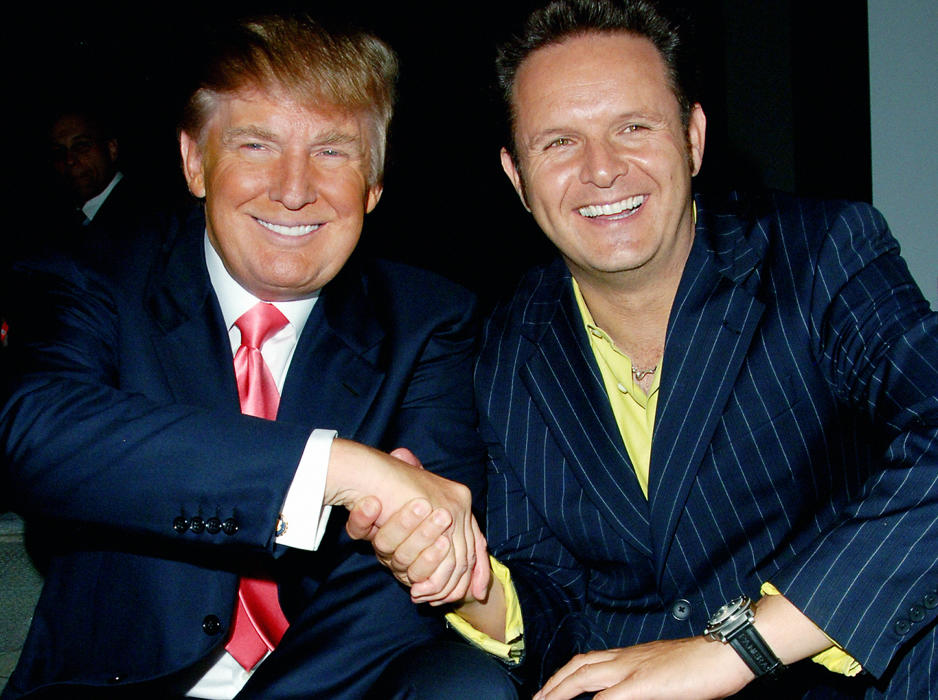There’s Probably No Good Reason Why Those “Apprentice” Outtakes Haven’t Been Released
Ever since those hot-mic recordings of Donald Trump on Access Hollywood dropped like a bombshell last Friday, the media has been salivating at the prospect of getting outtakes of the candidate on his former hit show, The Apprentice, which are said to be “far worse” in content. And yet it’s been almost a week—an eternity in the current news cycle—and we’re still waiting.
All week, MGM Studios and super-producer Mark Burnett have been insisting that contractual restrictions prohibit either of them from unilaterally making the footage public. The reality-TV hit aired on NBC but is owned by MGM, which bought Burnett’s production company last year.
A lawyer for the studio doubled down on that stance in a statement to news outlets earlier today. “MGM has agreements with artists across a wide spectrum of creative properties, including The Apprentice,” he said. “These agreements typically contain provisions related to confidentiality and artists’ rights. MGM has every intention of complying with its agreements with artists and honoring their rights, including with respect to The Apprentice.”
Not everyone buys that defense, however. If the studio is indeed sitting on newsworthy footage involving a presidential candidate, would releasing that footage really open it up to legal action? Television contracts are indeed tricky things—rife with dense legalese and arcane provisions that can’t be easily parsed without the help of teams of lawyers. But can they really hamstring a TV studio’s ability to disseminate information that could determine the course of the election?
For guidance, I spoke with Nicole Page, a partner at Reavis Parent Lehrer in New York who specializes in entertainment law and often works on reality-TV contracts. She says it’s impossible to know for sure without being privy to the specific contracts between Trump and MGM, but generally speaking, she says producers of reality-TV content require talent to sign releases that would limit their ability to pursue legal action.
“Part of what you’re agreeing to when you agree to be on TV is you’re releasing the network from pretty much everything, from all claims,” Page tells Fast Company. “The networks are generally so cautious about this, because they so don’t want these lawsuits, especially a big company like MGM.”
The industry has learned from experience. Lawsuits from reality stars and past contestants are not uncommon, and sometimes arise because someone doesn’t like how he or she is portrayed. As a result, Page says, releases tend to be pretty strong in favor of the producers and networks.
“The networks are already anticipating lawsuits,” Page says. “They know they’re big targets, and they have a thousand lawyers going over this stuff. If you put somebody like Donald Trump on the air who’s known to be litigious—he sues everybody for everything—they have to draft their contracts in a way that they don’t leave them open.”
Not Your Typical Show
Granted, all of this is speculative, and none of it may apply to a show like The Apprentice, an outlier in the TV world in that it was built around a real person. The Trump brand was central to the premise and execution of the show. (In 2004, Trump even unsuccessfully tried to trademark his catchphrase “You’re fired.”) It’s likely that the famous mogul negotiated a ironclad deal that was far more favorable to him than a typical contract.
“When someone is so high-profile, they obviously have a lot more bargaining power and leverage in what they can get a network to agree to,” Page says.
Still, it’s hard to imagine Trump having final say over every bit of footage that airs, especially given that Burnett himself is one of the savviest producers in reality-TV history. Page also didn’t seem too convinced by MGM’s explanation that “confidentiality” issues are preventing the footage’s release. “Confidentiality” typically refers to information regarding someone’s personal life or a company’s proprietary trade secrets, but not something the person does while the cameras are rolling. It would also be hard for Trump to prove defamation since, presumably, we’re talking about stuff he actually said.
If Burnett or MGM did release the footage, a worst-case scenario would be a breach of contract lawsuit from Trump himself or Trump Productions, which is part of the Trump Organization and listed as a producer on The Apprentice. A spokesperson for MGM did not respond to a request for an additional comment about its relationship with Trump Productions or whether it has received specific threats of a lawsuit.
Information Wants To Be Free
In the media world, there’s a kind of Murphy’s Law-type adage that says anything worth seeing will eventually be seen. Revisit, for argument’s sake, the infamous footage of Rob Ford, the late Toronto mayor, who was caught on video smoking crack cocaine. The news media knew of its existence for years before the footage finally made it to the public. But it eventually came out. Ford’s lawyer reportedly sent an email to Gawker, threatening legal action but never actually followed through.
Another possibility—a likely one, actually—is that someone will end up anonymously leaking the Trump outtakes to the press. In that case, media outlets that aired the footage would be protected by the First Amendment. Trump could still sue them, but the bar is pretty high when it comes to reporting newsworthy information about public figures. The hypothetical leaker, however, could be open to litigation if the footage were obtained illegally.
Either way, if these outtakes exist, there’s a lot at stake, which is why so many thousands of Americans are calling on their release before the election.
Count Page among them. “This guy’s running for president,” she says. “I feel like the public has a right to know. I mean, nobody wants to get sued, and everybody’s running for cover, but they should be released.”
Fast Company , Read Full Story
(17)














